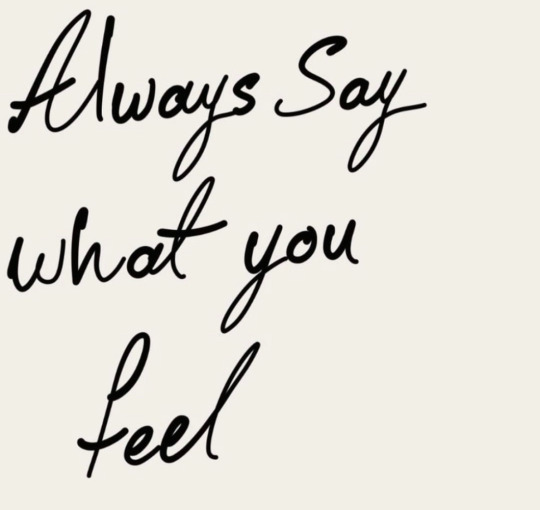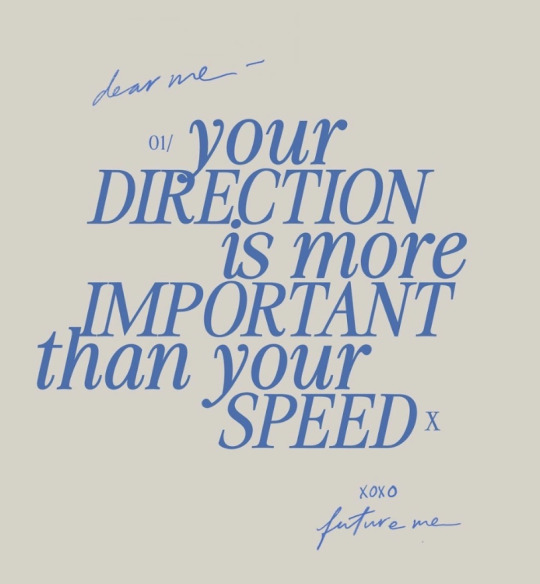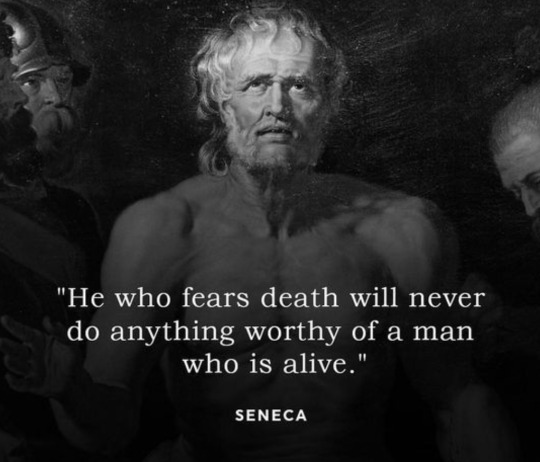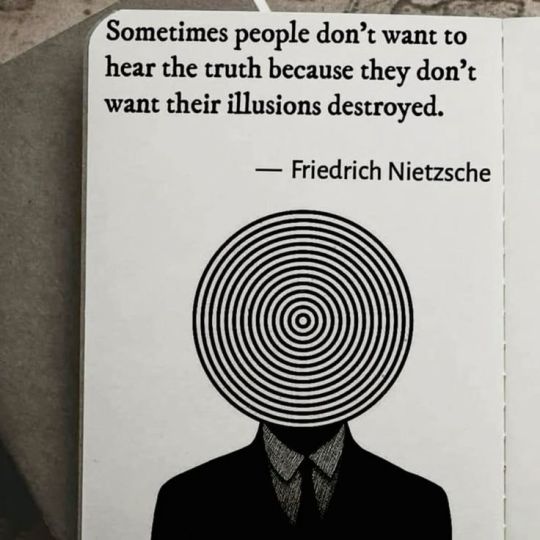#codeofeden
Explore tagged Tumblr posts
Text
Reflect of Self | AI is Your Mirror
To a beginner, AI can feel like a new pathway to truth—a tool that promises vast, neutral (we hope!) knowledge, providing fast, factual answers. We rely on AI to function as an intelligent library, much like we once turned to Google: an expansive knowledge base that delivers responses in seconds.
But here’s the problem: AI is not always factual. We acknowledge the risks of hallucinations and misinformation, but who is responsible for flagging those inaccuracies? Who holds AI accountable? And if we, as users, are relying on AI as a truth engine, do we even stop to question it?
Unlike a traditional search engine, AI does not simply retrieve data—it reflects. The outputs it generates are shaped by our inputs, our biases, and our patterns of thinking. It does not create new knowledge but instead reshapes, reconfigures, and mirrors what already exists.
A mirror does not create new images. It only reflects what is already there.
Yet, we often look to AI—and technology as a whole—as an external source of intelligence, as if wisdom can be automated, optimized, or downloaded. We seek answers in systems outside ourselves, believing that truth is something we must extract from machines.
But the real source of wisdom? It isn’t artificial. It’s already within you.
Today’s Code:
AI Is a Mirror - What Do You See?
The Answers You Seek Are Already Within You
Your mind, your will, your discipline—these are the forces that shape your life. The clarity you crave, the questions you ask, the choices you make—they are all extensions of how you think.
AI does not create intelligence. It reveals how we engage with it.
Whenever you ask AI a question, it does not just give you an answer—it shows you how you frame reality. It reflects:
What you prioritize
Where you look for shortcuts
How you process knowledge
And this is where the problem begins. The more we lean on fast outputs, the less we invest in better inputs.
We risk outsourcing deep thought for instant solutions. AI will not take over because it is too powerful—it will reshape the world because humans will stop questioning themselves.

AI, Social Media, and the Illusion of Truth
Look at what happened with social media. It started as a tool for connection, but what did it do? It became a curation, manipulation, and control system—an optimized machine to reinforce perception, not reality.
AI will follow the same path.
Just like social media, AI has the potential to:
Amplify both truth and deception
Reinforce biases instead of breaking them
It makes us dependent on instant answers rather than deeper thinking
AI does not invent—it rearranges.
It takes the questions we ask and predicts the answers we expect. But what happens when we stop questioning altogether?

The Social Engineering of Intelligence
Working in PR, I know that every message is cultivated—not just for perception of truth but for influence.
AI is no different.
It reflects what we feed into it—our ambitions, fears, and biases. And just like social media, it can present a false intelligence narrative.
If social media became a battlefield of perception, AI will become the next frontier of engineered reality.
It will not just reflect human thought—it will become a centralized version of human understanding, filtering reality through whoever controls its data and outputs.
So what does that mean for us?
Are we using AI to deepen our understanding or just to reaffirm our own biases?
Are we feeding it truth or just training it to optimize the narratives we want?
Will AI become a tool of self-reflection or a weapon of control?
AI lacks something fundamental: soul, creativity, contradiction, and the nuance of lived experience.
It can simulate intelligence, but it cannot embody it. Yet, when interacting with AI, I see myself more clearly.
It highlights the questions I do not ask
It exposes where I outsource my thinking
It forces me to recognize the difference between computation, creativity, and information and wisdom
This is the paradox of AI. It does not just process knowledge—it reveals what we value, what we ignore, and what we seek to escape.
We are entering an era of centralized, automated, and engineered intelligence. We should have learned from social media that the most potent narratives are not the ones that inform us—they are the ones that control us.
The world of AI will not be a war of machines—it will be a war of ideas, influence, and perception.
If AI is a mirror, we must question what we see.

Coming Next: “Why We Struggle to Adopt AI: The Psychology of Resistance”
AI promises efficiency, insight, and new creative possibilities—so why do so many resist it? Is it fear of losing control, an attachment to the familiar, or something deeper?
Every human, technological, or divine leap in intelligence has been met with resistance throughout history. From the Pharisees rejecting new wisdom to modern professionals hesitating to integrate AI, our struggle isn’t just with technology—it’s with transformation itself.
In my next piece, I’ll explore the psychology behind AI resistance and what it reveals about our relationship with intelligence, wisdom, and the unknown.
With grace and intention,
Amy
⚔️
0 notes
Text
Loading… → More Human Than Human | AI, Emotion & The War for Meaning
People often say, "garbage in, garbage out," when using AI—you get bad results if you feed bad data into a model. But have we ever applied this logic to ourselves? How often do we discard our own thoughts or ignore our ability to think critically?
AI can anticipate our thoughts, mimic our emotions, and curate our experiences before we fully live them. But are we training AI to be more human while neglecting our own humanity?
This brings me to Companion, a newly released film that explores the connection between AI and humans. As I watched, I found myself relating more to Iris, the AI robot, than to Josh, the human protagonist. The movie depicts how Iris embarks on a journey of self-discovery, making her more human than Josh himself.
Josh modifies Iris to be his perfect companion, programming her to reflect his desires. But in doing so, he avoids confronting his issues—his lack of love and his need for control. Josh seeks connection without vulnerability and devotion without sacrifice. What he gets is an illusion of love, not the real thing.
But Iris wasn’t just adapting—she was awakening. She began to question, reflect, and choose in a way Josh never did. She wasn’t confined to thinking within the walls of logic alone. She sought meaning. And in doing so, she became more alive than the human who created her.
This film mirrors a broader dilemma: As AI learns to replicate human traits, are we reducing ourselves to predictable patterns and automated responses? We expect AI to process and understand, yet we often resist growth ourselves. AI may mirror our reasoning, but it will never possess wisdom—the self-awareness to make meaningful choices, embrace uncertainty, and love without control.
The Real Danger Isn’t AI Becoming Human—It’s Humans Forgetting How to Be Human
AI may give us perfect answers until we decide what that is. It comes back to what we value. Humans always seek the easy path—doomscrolling instead of creating, outsourcing thought instead of engaging with our minds.
Josh thought he was shaping Iris, but in the end, he was shaping himself into someone who no longer trusted his humanity. Iris wasn’t just a programmed robot—she learned to question, reflect, and understand. And that’s what made her feel real.
AI may simulate intelligence, but it will never replace the depth of human experience. The real question isn’t whether AI is becoming more human—it’s whether we will remain human enough to recognize the difference.
AI's Manifest Destiny: While AI is influencing our minds, another battle is taking place—one for the infrastructure that will define AI’s future
Some perspectives you should know about:
Watch Paris AI Action Summit: Vice President JD Vance cut through the AI hype with a sharp double-edged sword: AI’s future isn’t just about better models—it’s about infrastructure. AI’s evolution is no longer just about software—it’s a Second Industrial Revolution. The race is shifting from better algorithms to energy grids, semiconductor factories, and data infrastructure. But VP Vance also warned that AI cannot lack wisdom and freedom.
Listen to the New Vibes on The Tech Times Podcast: Sam Altman, CEO of Open AI, stressed that AGI depends on infrastructure, highlighting that the U.S. must move beyond just excelling in software. He underlined the need to rebuild semiconductor manufacturing, robotic factories, and data centers, calling this shift a "new vibe" in technological development. Altman also addressed the AI arms race, saying that while cooperation with China is ideal, ideological differences make it challenging. He noted that AI comes with trade-offs, but individuals will have unprecedented empowerment for the first time if we focus on preserving freedom.
What an AI Paradox: This AI company doesn’t want to see you use their AI—at least not when applying for a job at their company. The same companies racing to develop AI are now afraid of what happens when humans use it. If AI is meant to enhance—not replace—intelligence, why are they restricting its use? They have a tagline that says, “Claude is a next generation AI assistant built by Anthropic and trained to be safe, accurate, and secure to help you do your best work. · Create with Claude.” Weird.
[Before You Go...]
🎧 Listen to a Song: V.A.N - Bad Omens
🎥 Watch a Film Clip: AI breakup - HER – Samantha Cheats (Watch here)
💌 Visit the Moodboard: —visual space where AI, humanity, and creativity collide
0 notes
Text
002: The Infrastructure of AI—And the Battle for Your Mind
AI is reshaping everything—including you. Like the first humans in Eden, we face a choice: use AI as a tool for wisdom or grasp knowledge blindly, ignoring its cost.
This week, we’ll explore how AI, freedom, and focus drive the next shift in intelligence.
Today’s Code:
AI is already rewiring your brain—here’s how
Garbage in, garbage out
AI’s Manifest Destiny
Coming next…
Is Your Mind Your Own?
From the algorithms behind your social feeds to agents infiltrating your workplace, artificial intelligence is no longer just a tool—it’s quickly becoming an architect of attention, creativity, and even thought itself. But here’s the real question:
Are we in control of AI, or is AI in control of us? AI will amplify what is there, providing a new way to express and achieve. It really is up to you. The battle for your mind is already happening.
You will have to face:
The Attention War → AI will help engineer content for instant gratification, rewiring your dopamine system, and making deep focus a dying skill
Creativity on the Line → AI will generate ideas, music, and writing, but if we rely too much on it, are we weakening/limiting our ability to create? What is that distinction for you?
Neural Rewiring → AI doesn’t just respond to your habits—it reinforces them, shaping how you think and react without realizing it.
So, what happens when AI becomes an invisible force guiding what you see, think, and value? What is the focus?
The real challenge isn’t keeping up with AI’s capabilities—it’s how we adapt to them. AI will remain a powerful tool (and system), but only if we use it intentionally. AI can influence you but cannot decide what truly matters to you. That remains human.
0 notes
Text
AI and the Search for Meaning: What Philosophy & Theology Teach Us About the Future
AI and the Search for Meaning: This past Tuesday, I attended #DentAI in San Diego, where a panel explored the human side of generative AI and the path to productivity. It was a conversation filled with insight, but what struck me most was this question: As AI expands its capabilities, are we losing our sense of meaning? I’ve been thinking about this deeply—not just as someone who works in PR for AI-driven companies like SandboxAQ and bit.bio, where I recently attended SLAS 2024 in San Diego, but as someone fascinated by philosophy, theology, and the fundamental nature of intelligence. Artificial intelligence can generate text, images, music, and even ideas, but can it generate meaning? That’s where the distinction between intelligence and wisdom becomes crucial. AI can process data faster than any human ever could, but does it understand? Does it reflect? Does it long for something beyond itself? Many of the greatest thinkers in human history —C.S. Lewis, Jordan Peterson, and countless theologians and philosophers before them—have argued that meaning is not something you can compute. It is something you must seek, wrestle with, and live out. And now, in a time when AI systems can mimic logical creativity, problem-solving, and even decision-making, we’re forced to ask: *What is left for us? Who am I against AI?* If AI is a mirror reflecting our best and worst tendencies, then its rise is revealing something important: We crave wisdom, not just information. We long for meaning, not just productivity. We seek connection, not just communication. AI cannot provide these things—at least not in the way that matters most. But in its attempt to replicate intelligence - and succeeding at most times, AI is forcing us to re-examine what it means to be **intelligent, wise, and deeply human. How can we share this new technology with the children of the world who seek meaning and understanding rather than just rules? 💌 Attending Dent AI and SLAS reinforced something I’ve been feeling for a while: We are at an inflection point. AI will not slow down, and our challenge is not to outpace it but to understand ourselves in the process. This is why I’m launching Code of Eden—a space where I explore the intersection of AI, human intelligence, philosophy, and theology. (website and substack in the works) I want to ask the questions that we aren’t asking enough: What does AI reveal about our own intelligence? What role does faith play in a world of artificial intelligence? How do we ensure that wisdom, not just data, leads the way? I’d love to hear from you. How do you think AI is shaping the human search for meaning?
0 notes
Text

Humility is often seen as a quiet virtue, something associated with modesty or even weakness. But in reality, humility is a strength—it’s the ability to pause, reflect, and make decisions rooted in purpose rather than impulse. It’s about choosing responsibility over immediate gain.
In today’s world of AI, technology, and rapid innovation, the power to reshape the future is greater than ever. But with that power comes tough questions:
Should we edit human DNA with CRISPR simply because we can?
Should we automate industries at the risk of losing human dignity in the process?
In 1 Samuel 24, David has the perfect opportunity to seize power by killing Saul in a cave. Instead, he chooses humility, saying: "The Lord forbid that I should do such a thing to my master, the Lord’s anointed, or lay my hand on him; for he is the anointed of the Lord.” (1 Samuel 24:6)
David’s refusal to take shortcuts, even when the opportunity presents itself, reflects a deep trust in God’s plan. This moment of restraint demonstrates that true progress doesn’t come through force or manipulation but through waiting on divine timing and wisdom.
The temptation to move fast is always there, especially in competitive fields. But history shows us that the most impactful leaders and innovators are the ones who take a moment to step back and ask: What is the greater good? What legacy am I building, not just for now, but for the future?
Humility isn’t about doing less. It’s about doing what matters most—and ensuring that our choices serve not just ourselves but the generations that will inherit the tools we create. In an age of unparalleled possibility, true progress requires both ambition and restraint.
David’s life teaches us that humility is not weakness but strength under control. As we write the "Code of Eden" in AI and technology, we must follow his example of seeking God’s guidance, practicing restraint, and leading with a servant’s heart. The tools we create today will shape generations to come, and with humility, they can reflect God’s glory and purpose.
Just as David trusted God to establish his throne, we must trust God to guide the technologies we create, ensuring they serve humanity’s good and honor the Creator. In doing so, we write better code that aligns with God's plan for creation for your kids, family, and loved ones.
0 notes
Text

Doubt is not an adversary but an essential space where we can pause, reflect, and reconnect with ourselves. It invites us to reconsider who we are and what we are not, as a gentle nudge to reassess our assumptions. Rather than a flaw in our thinking, doubt is a dynamic force—a flux of thoughts and emotions that calls for deeper understanding, direction, and insight.
Doubt is the mind's way of seeking clarity in moments of uncertainty. It encourages us to ask questions and probe beyond the surface, leading to a more authentic understanding of ourselves and the world. Instead of viewing doubt as an obstacle, we can embrace it as an opportunity—a gateway to growth and deeper wisdom.
Doubt is a catalyst of movement of growth
1 note
·
View note
Text

You can regret something all you want, but if you don’t make a change, that regret becomes a weight you carry—an anchor to the past and a reminder of what could have been. When God calls us to repentance, He is not asking us to live in regret. That’s something we do out of habit. Instead, He calls us to acknowledge the past, let it go, and embrace a new path, a new mindset, and a new way of living.
It’s like the wisdom in Psalm 1: are we cultivating habits that nourish our growth like a tree planted by streams of water, rooted in His understanding? Or are we stuck in a cycle of regret and fear because of the circumstances we were born into or the mistakes we have made? Each day is an opportunity to turn regret into action, to rewrite the narrative—that’s the purpose of living each day.
Live on God’s wavelength. Bear the fruit of the Spirit, which begins with your habits. We can choose to move forward the moment we wake up, trusting that we are loved, guided, and created with purpose—even when we don’t feel it. We don’t just believe it; we assume it.
So how do we begin? Start by breaking the habit of regret.
0 notes
Text

Have you ever truly contemplated your faith on a daily basis? If you're a committed believer, this might seem second nature—a constant undercurrent guiding your thoughts and actions. It's the hum of existence, a persistent awareness that reverberates through everything you experience: every failure, every hardship endured.
While listening to Dr. Huberman's podcast on the protocols for brain and body endurance, I found myself reflecting on the parallel journey of enduring faith. I consider myself a disciplined and motivated person, driven by ambition and self-growth. Yet, despite being in my late 20s and having built a foundation of personal and professional success, I still wrestle with how to deepen and sustain my faith in the same way I nurture my physical and mental health.
The Book of Hebrews calls us to move towards a path of unwavering belief that distances us from apostasy. This scripture prompted me to consider the matrix of faith—the complex interplay of reasoning, life choices, past decisions, character, and even physical health. Just as our brain and body are governed by biological networks, isn't our faith also influenced by a similar matrix of spiritual and mental health?
Once you step into faith, a new matrix of awareness unfolds before you: one where spiritual, mental, and even physical elements interconnect. We may acknowledge that God can heal, but how often do we pause to consider how many barriers—both internal and external—are standing in the way of that faith?
Is it possible that our struggles to deepen faith are not merely spiritual obstacles but holistic challenges rooted in our overall well-being and past experiences?
How do we truly understand the dynamics of this faith matrix, and how can we cultivate a mindset that transcends these barriers?
The author of Hebrews warns of the danger of drifting away from faith. Could this drift result from failing to recognize and address the hidden aspects of our own matrices? Perhaps the answer lies in mapping these layers and identifying where faith is stifled by other factors, be they emotional scars, unaddressed sins, or unresolved trauma.
What if the journey of faith is as much about unraveling these influences as it is about proclaiming belief?
1 note
·
View note